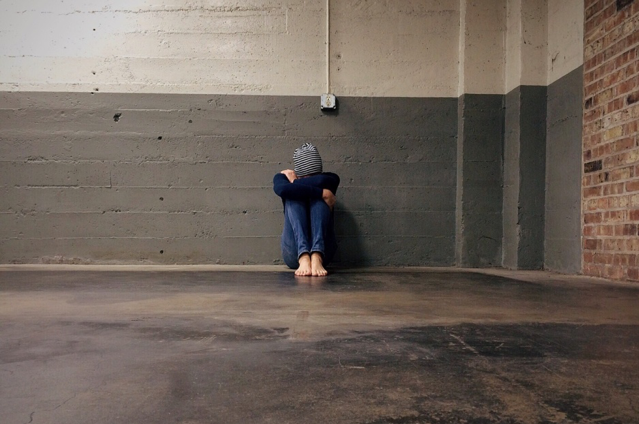 Stephen Geller Katz LCSW-R
Stephen Geller Katz LCSW-R
Misophonia Cognitive Retraining Therapy
 Stephen Geller Katz LCSW-R
Stephen Geller Katz LCSW-RMisophonia Cognitive Retraining Therapy
Misophonia Cognitive Retraining Therapy, as featured on the MTV True Life episode: “I Have Misophonia” premiering Friday, December 16th, 7:00 PM EST. See Clip >
|
|
|
| Moderate to severe anxiety triggered by chewing sounds, including: | ||
|
|
|
You may also be affected by visual stimuli, such as repetitive foot or body movements, fidgeting or movement you observe out of the corners of their eyes. Intense anxiety, rage and avoidant behavior may develop as a result of misophonia.
 * Do you feel your family and friends don’t understand how much you suffer?
* Do you feel your family and friends don’t understand how much you suffer?
* Do you often feel you can just suffer through a social event where there is eating present only to find that you must “escape” before you have a panic attack?
* Do you find that some people are at first understanding and make some efforts not to make the triggering sounds in front of you, but soon forget and constantly have to be reminded, causing you to feel angry, anxious and depressed?
* Are you avoiding social activities that you enjoy because of the misophonia?
* Are you fearful of losing your job and/or is the misophonia effecting your job performance?
You may be a candidate for Misophonia Cognitive Retraining Therapy, or MCRT.
Stephen Geller Katz, LCSW-R, with over 20 years of clinical experience, a New York University graduate, developed Misophonia Cognitive Retraining Therapy and founded Misophonia Cognitive Center™ in response to the growing number of people with Misophonia coming to his private practice from audiologists and ENTs. He discovered that by helping people to retrain and reinterpret the thoughts around their Misophonia, anxiety and depression symptoms began to improve. But even more important so did the Misophonic trigger response.
Does Misophonia have any relation to other disorders? Experts don’t classify Misophonia as a psychiatric disorder yet. However, the Misophonia condition implies negative thinking and behavior patterns due to certain sound triggers. Overall, it is a life-changing experience for people with this condition. They cannot freely participate in every activity due to the fear of experiencing intense anxiety and aggression upon hearing certain sounds.

(Source)
It is a sound sensitivity that often leaves people with depression and stress. However, some experts think that Misophonia might correlate with other similar disorders. Here’s more on the topic.
Misophonia is a selective sound sensitivity syndrome. In this condition, an individual can experience sudden outbursts of anger, anxiety, and irritation when hearing sounds such as someone chewing, breathing loudly, sigh, sniffing, etc. Reactions can vary from person to person and may alter their lifestyle to a significant degree that they might stop engaging in social events, interactions, etc.
While some people might feel annoyed or irritated, others can lash out and act aggressively. There is still a need for extensive research to explain the full spectrum of all the complications, scientific analysis, treatments, and diagnosis of Misophonia. Experts are making efforts to increase the awareness of this condition to help patients.
It is worth mentioning that there aren’t specific criteria for the diagnosis of Misophonia. In fact, in the DSM -5 (Diagnostic and Statistical Manual of Mental Disorders, Fifth Edition), it isn’t a recognized official diagnosis. This condition is similar to multiple disorders and conditions such as intermittent explosive disorder, phobias, and OCD. Still, not all of the symptoms fully coincide with other disorders.
Despite the lack of proper diagnostic criteria, your doctor can work with you closely to help you through treatments to manage the symptoms and negative responses.
Did you know that there is an endless list of everyday sounds that can be sound triggers for Misophonic people? Here are some of them.
Doctors often associate this condition with various mental health disorders and issues that reflect some of the main symptoms. For example, a few symptoms of Misophonia are similar to bipolar disorder, OCD, depression, anxiety, stress, obsessive compulsive personality disorder, Asperger’s syndrome, and even autism. Also, a doctor might misdiagnose the condition as ADHD due to the intense distractibility that Misophonia exhibits in certain patients.
The key signs for screening and evaluation include behavioral pattern disturbances and mental health symptoms such as anxiety, manic depression, and more. Misophonia conditions resemble the side effects of various medications and treatments. This makes the diagnosis quite difficult for an expert while making it troublesome to find a solution for the patient.

(Source)
Therefore, the initial approach involves performing laboratory tests that exclude certain conditions and narrow down the list of possible conditions or disorders that include Misophonia. X-rays and different scans might help in assessing brain activity and evaluating the results. Often patients receive self-test questionnaires that disqualify other diagnoses.
Moreover, experts remain confused regarding the link between autism and Misophonia. This is due to the complex sensory stimulation that occurs in autism. Nevertheless, there is still a need for proper studies and research to establish a valid connection between the two.
There aren’t any exact causes and knowledge of what causes such strong reactions in people with Misophonia and other similar disorders. However, some factors may lead to Misophonia and other disorders with similar symptoms.
Misophonia can occur in people with tinnitus. In this condition, affected people hear ringing, buzzing, or any other discomforting sound in their ear(s) without any apparent external sound source.
Doctors believe that those with OCD and Tourette syndrome might have a higher chance of manifesting Misophonia symptoms. Moreover, they believe that anxiety disorders play a major role in leading to Misophonia potentially.
It is valid to assume that some form of exaggerated brain activity can stimulate a more-than-necessary reaction in response to hearing certain triggers sounds. Scientists have this opinion as they notice that misophonic people have higher connectivity between their auditory cortex and anterior insular cortex.
If the condition runs in the family, there may be a genetic factor at play leading to Misophonia. Sometimes, it is possible that an older member of the family might have a Misophonia-similar disorder, and a young member may show symptoms of Misophonia.
Is your Misophonia condition getting worse day by day? Well, it is best to procure the best treatment options as soon as you can. A speedy recovery is possible only when you notice the symptoms early. By discussing your options and experience of Misophonia with the right doctor, you can arrive at solutions that may effectively regulate your negative responses against trigger sounds.
Get in touch with Misophonia Cognitive Center™ to benefit from the expertise of Stephen Katz LCSW-R. Call us at 646-585-2251 today and schedule an easy online appointment.
Reference Links:
https://www.verywellmind.com/misophonia-hatred-of-sound-1191958
https://www.webmd.com/mental-health/what-is-misophonia
https://link.springer.com/article/10.1007/s10879-019-094383
https://www.sciencedirect.com/science/article/abs/pii/S2211364918300034